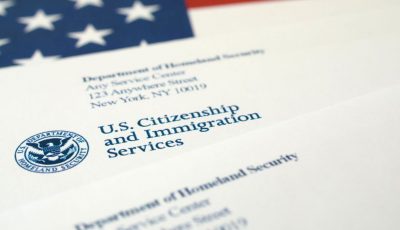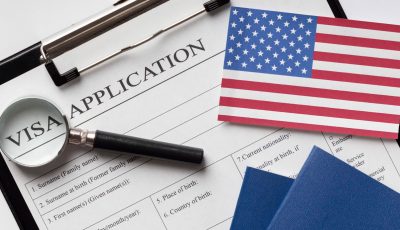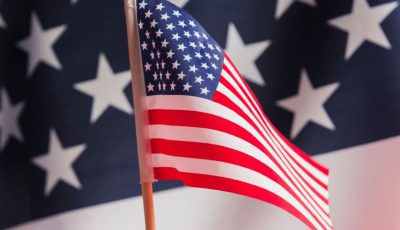‘Allowing Tinian Dynasty workers to amend suit futile’
Department of Homeland Security Secretary Jeh C. Johnson and the U.S. Citizenship and Immigration Services have asserted that granting Tinian Dynasty Hotel & Casino’s workers’ request to amend their lawsuit over denials of their CW-1 visa petitions would be futile.
Defendants Johnson, USCIS Director Leon Rodriguez, and USCIS California Service Center Director Kathy A. Baran, through the U.S. Department of Justice, opposed to the workers’ motion for leave to file first amended complaint.
DOJ Office of Immigration Litigation trial attorney Sarah L. Vuong asserted that because plaintiffs’ amended complaint does not remedy the fatal flaws of their original complaint, the U.S. District Court for the NMI should deny their motion for leave to file an amended complaint as futile.
“As with plaintiffs’ original complaint, their amended complaint fails to allege any facts for which the court can grant them any relief,” Vuong said.
Instead, Vuong said, plaintiffs’ amended complaint recites general conclusory statements and accusations against defendants but fails to present any cause of action upon which the court can act.
Over 500 foreign workers of Tinian Dynasty Hotel and Casino have filed a lawsuit against lawsuit as Johnson, Rodriguez, and Baran over the USCIS’ denial of HKE’s 197 CNMI-only Transitional Worker (CW-1) petitions involving 693 beneficiaries.
Attorney Bruce Berline filed the lawsuit as counsel for Belal Hossain, Wenli Zhong, Pukar Patel, and 500 unknown co-plaintiffs.
Last month, the federal court dismissed the workers’ lawsuit.
Chief Judge Ramona V. Manglona ruled that the decision to deny the owner of Tinian Dynasty Hotel and Casino’s CW-1 visa petitions for their foreign workers is clearly not final and that the Administrative Appeals Office is currently in the process of reviewing it.
Manglona said because Hong Kong Entertainment (Overseas) Investments Ltd.’s petition denials are not final, the court lacks submit matter jurisdiction and must dismiss the case filed by the workers.
Manglona, however, ordered that plaintiffs (workers) are allowed to refile the lawsuit after the Administrative Appeals Office has issued its decision and the agency’s action is final.
In plaintiffs’ motion for leave to file first amended complaint, Berline asserts six claims. In addition to the equal protection claim asserted in the original complaint, Berline also includes claim for an equal protection clause violation arising from USCIS’ alleged approval of a visa petition.
In defendants’ opposition filed last week, Vuong said plaintiffs newly argue that USCIS’ decision denying their extension request and informing them that they must leave the CNMI violates their due process right to be heard.
Vuong said similarly to the original complaint, plaintiffs again allege that USCIS’ consideration of the federal criminal case against HKE violated plaintiffs’ due process right to be heard.
Under the Administrative Procedure Act, plaintiffs argue that USCIS’ denial of HKE’s extension request on their behalf is arbitrary and capricious.
In their final claims for relief, plaintiffs again assert that USCIS violated the APA’s rulemaking provision in denying the CW-1 visas filed on plaintiffs’ behalf.
Vuong said plaintiffs’ attempt to cure the defect in their original complaint by now claiming that “plaintiffs seek relief from the USCIS decision that they must immediately leave the Commonwealth.”
Vuong said this language comes from USCIS’ decision denying the extension of nonimmigrant status requested by HKE on behalf of beneficiaries to the CW-1 visa petitions.
However, Vuong said, plaintiffs again have failed to state a claim for which the court can grant relief under either the Equal Protection Clause or Due Process Clause of the 5th Amendment or the APA.
Plaintiffs argue that USCIS has treated them differently than the beneficiaries of another HKE petition.
Vuong said plaintiffs, misinterpret the February 2015 notice; incorrectly presenting it as evidence that USCIS has recently approved a CW-1 petition filed by HKE and thus demonstrating that USCIS believes that HKE is a legitimate business.
Vuong said as explained by California Service Center section chief Joseph Fierro, the February notice does not grant any immigration benefit to the beneficiaries.
In fact, Vuong said, Ms. Moral, the named beneficiary on the transfer notice, is in the same status as the plaintiffs in this lawsuit as USCIS has denied the petition containing her extension request as well.
Vuong said the court dismissed the original complaint because there is no final decision on the CW-1 visa petitions.
At this time, Vuong said, USCIS still has not issued a final decision on the CW-1 visa petitions, and plaintiffs do not alleged otherwise.
“Therefore, there is no basis for this equal protection claim,” she said.
Vuong said any equal protection claim regarding the extension requests must also fail because USCIS denied the extension requests to both transferees and renewal employees once it had denied the CW-1 visa petitions.
Vuong cited the denial request for extension of status to new employee Wenli Zhong and to transfer employee Pukar Patel.
“Thus, there is no disparate treatment—nor have plaintiffs alleged any—in the extension denials,” she said.
On plaintiffs’ two claims under the due process clause, Vuong said plaintiffs have no colorable constitutional claim because HKE’s filing of a CW-1 petition on their behalf does not grant plaintiffs any liberty or property that requires due process protection.
On APA claims, Vuong said although plaintiffs amended their complaint to challenge the extension denial, they continue to challenge USCIS’ underlying decision denying the visa petitions.
Vuong noted that as Manglona ruled when dismissing the original complaint, “because the petition denials are not final, the court lacks subject matter jurisdiction.”
Thus, she said, any attempt to challenge that decision must fail because it is not final.
“Instead, the only decision that is final is the decision denying the extension requests which may be reverse if the visa petitions are ordered approved on appeal,” she said.
Vuong said USCIS based its decision in denying the extension request on fact that plaintiffs did not remain eligible for CW-1 classification.
Under the regulations, she said, USCIS cannot grant plaintiffs an extension without them demonstrating eligibility.
Vuong added that because the underlying agency decision is not final—a statutory requirement under the APA—plaintiffs cannot challenge that decision through the extension denial.



























